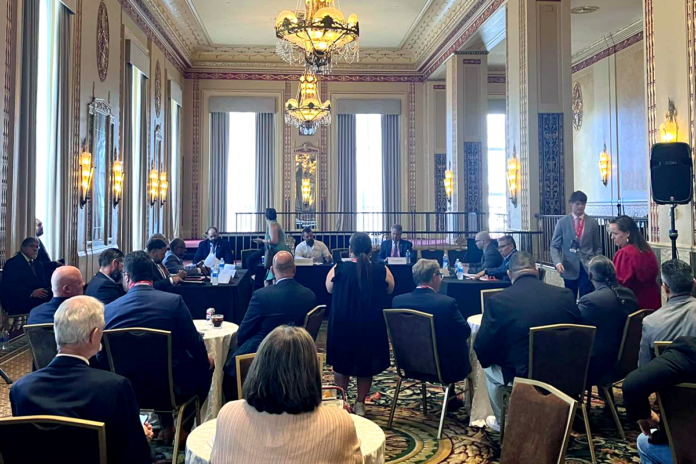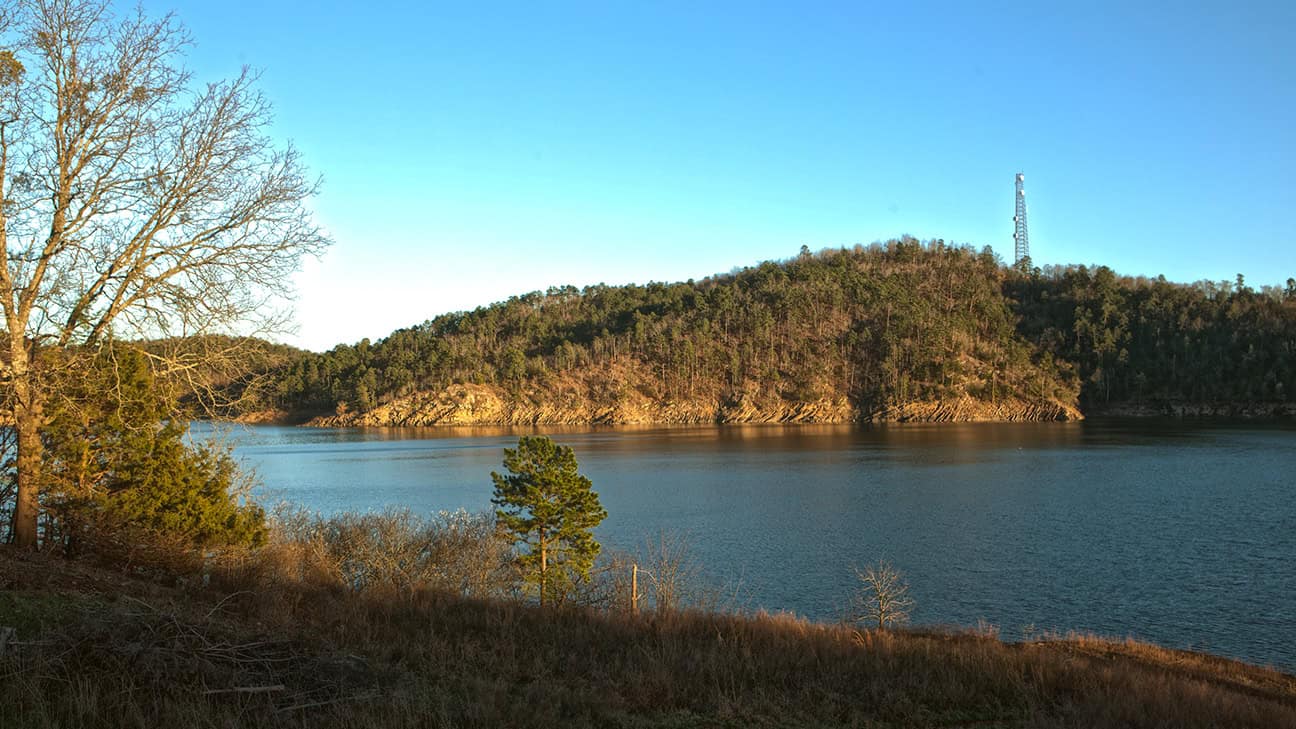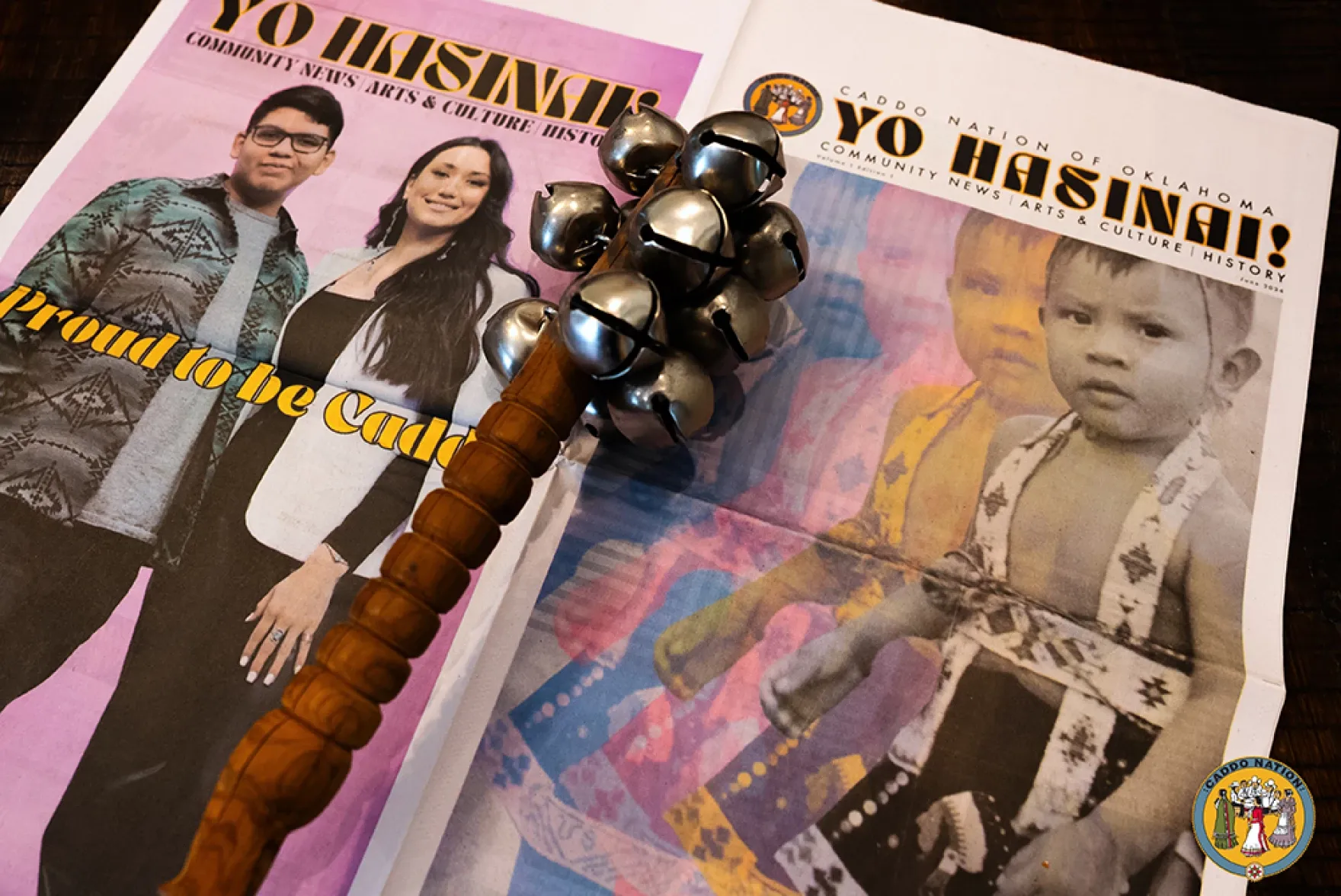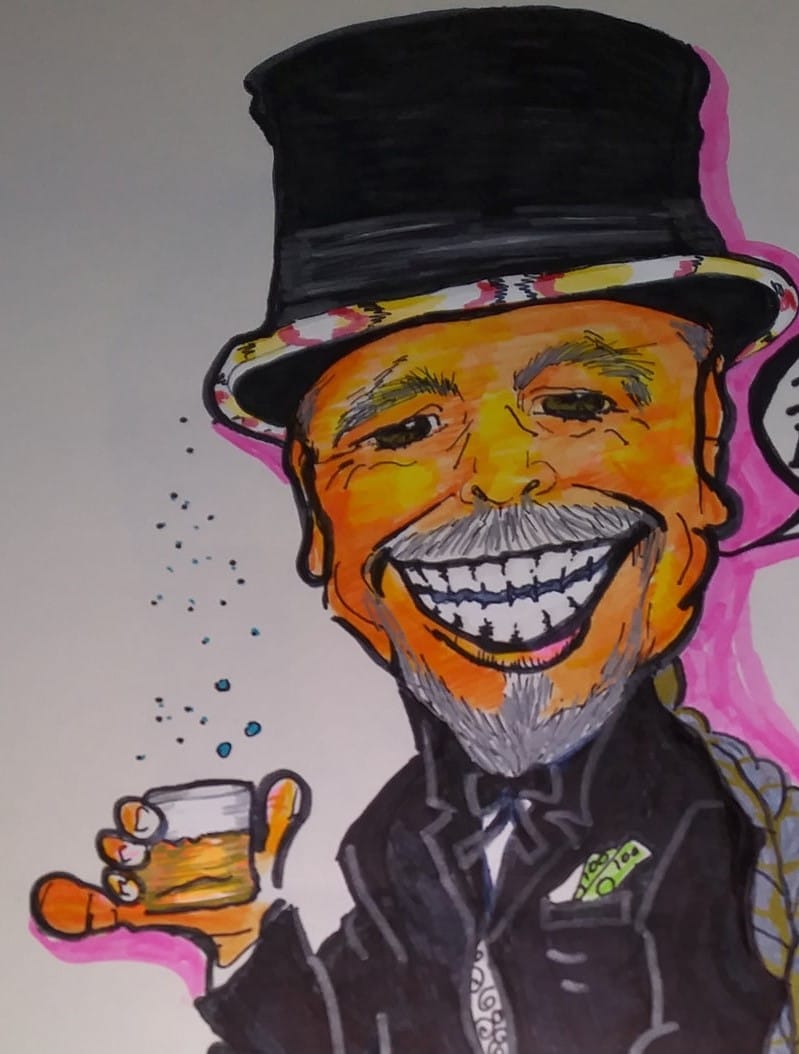

Chief Standing Bear advocates for Self-Governance at RNC

Standing Bear spoke about the Nation’s self-governance efforts, the continuing lack of partnership from the Department of Interior, and the hope of working together
Written by Shannon Shaw Duty, Editor Osage News
Principal Chief Geoffrey Standing Bear spoke on behalf of the Osage Nation at the Republican National Convention this week at an event hosted by Sen. Markwayne Mullin (R-OK).
The event titled, “Indian Country’s Priorities for the Republican Party,” also featured speakers Marshall Pierite, Chairman for the Tunica-Biloxi Tribe of Louisiana; Jarrod Lower, Lumbee Tribe of North Carolina, member of the North Carolina House of Representatives from the 47th district; Myron Lizer, Businessman and former Vice President of the Navajo Nation; and Loyola University Chicago School of Law Professor Adam Crepelle, United Houma Nation. Mullin is a Cherokee Nation citizen.
Standing Bear said self-governance and self-sufficiency for tribes are vital. As an example, he said during the 2020 Covid-19 pandemic the Osage found itself without critical supplies, such as meat for their elder and youth meal services and fresh vegetables from the local grocery stores. That is why the Nation took the initiative to build Butcher House Meats and Harvest Land.
“But the United States’ relationship, with us, like it is with all of you, is complex and contradictory and to me, it really makes no sense,” Standing Bear said.
He talked about the current relationship the Nation has with the Department of Interior and the challenges the Osage Minerals Council faces with the Mineral Estate. He referenced the film, “Killers of the Flower Moon,” and said there is still a government system set up that still allows abuse.
“Under their control, the Department of Interior, we’re down to 10,000 barrels a day. And so last year, last April, we filed our protest against new regulations that were imposed upon us,” he said. The lawsuit was filed in the District of Columbia.
“If we’re going to have a partnership, let’s make it vital. We bought our reservation, 1.47 million acres with our own money. The federal government comes in and says we’re gonna do it, we’re gonna take care of it, but you’re gonna lose all your property,” he said.
He said the Nation has spent millions in self-governance initiatives and provided for their own people with their own money.
“So here we are spending money, and we sue the Department of Interior because we said we can take over under law, the oil and gas, we can do this. We know how to do it, we have our own environmental department, we know how to write our own laws, we know how to do things,” Standing Bear said. “They said you can’t do that. Because the functions you want, which include checking what’s in those oil tanks, how much is in there, how much is being sold, what’s happening out there to the field … We were denied those positions that under federal law allows us to take over. The Bureau of Indian Affairs said we’re going to continue to do it, and Osage, you can’t do it, you can’t go look at your own property, you can’t check it, you can’t do all that … that is the real world.
“But that just shows you folks the contradiction between working together,” Standing Bear said. “The trust relationship does not mean the federal government can take away our property. We bought it, we paid for it with our own money, and they can’t come in there and tell us how to use it. And then take it and have that property disappear.
“I just hope this new administration will join us and make permanent changes. So we really are going to be self-sufficient. We really are going to talk about self-governance. That’s what we got to do,” Standing Bear said. “I respectfully ask you to allow us to have self-governance, we know how to take care of ourselves and our property and let’s work together as partners so we can build the health care facilities, and we can continue this work and get that oil and gas out of the ground in a safe manner.”
The Republican National Convention was held in Milwaukee, Wis., July 15-18.

Choctaw Nation Opposes Hydropower Project to Protect Natural Resources, Sovereignty

Tribe looks forward to discussions with federal agency
The Choctaw Nation of Oklahoma (CNO) Tribal Council has approved a measure opposing a hydropower project proposed by the Southeast Oklahoma Power Corp. (SEOPC).
A formal letter about the issue was sent to the Federal Energy Regulatory Commission (FERC) detailing the Tribe’s concerns about potential harm from the project and the importance of Tribal participation in the approval process.
“One of our Tribe’s top priorities is defending our sovereignty, which includes protecting our culture and community. These efforts include being good stewards of our land and natural resources,” CNO Chief Gary Batton said. “Fortunately, FERC has recognized it must not issue preliminary permits for projects on Tribal land if a project is opposed by a Tribe, and we call on the agency to adhere to that policy.”
The proposed project would impact endangered species, including a particular mussel, and numerous historical sites. It also runs counter to the historic Water Settlement Agreement between CNO, other Tribes, Oklahoma City and the state of Oklahoma, which is enforceable as a matter of federal law.
Additionally, the proposed project would trigger numerous regulations and laws, including the Endangered Species Act, the National Historic Preservation Act and others. It also necessitates extensive studies and meetings with multiple state and federal agencies to fully understand the impact of the project.
“Cooperation between sovereign tribal nations and the federal government is critical to protecting the natural resources we all enjoy,” Batton said.
Caddo Nation debuts community newspaper, 'Yo Hasinai!'

For years, the Caddo Nation mailed a newsletter to members. Leslie Halfmoon (Caddo / Delaware / Choctaw) said getting that newsletter meant a lot to her.
“I remember when I was in college in New Mexico and so far from home, and I would get our little Caddo newsletter in the mail, and I was so proud,” she said.
But, according to Halfmoon, the newsletter died out decades ago and so too did an important piece of direct communication from tribal leadership to members.
Now, Halfmoon is part of a wave of change and growth in the Caddo Nation. She was hired in December 2022 as the media and marketing director, leading a new department.
Halfmoon credited current tribal leaders for pushing for a renewed effort to communicate with members, first through social media and now through a physical paper. She said that increased communication is part of a trend of economic and governmental growth in the Caddo Nation.
When Halfmoon was first hired, she focused on social media because it was the quickest and easiest way to get information out to the community. But, she said some elders in the community felt left out of the conversation.
The new paper, Yo Hasinai, is meant to provide equal access to information for all members.

The first edition was created by Halfmoon and her team: Jay Kaulay (Kiowa), media specialist, and graphic designer Kacey Roach (Caddo), founder of True Chiefs apparel brand.
Yo Hasinai is also inspired by the old tribal newsletter and the feeling members like Halfmoon got when they received a physical message from the tribe.
“It makes you feel so happy that your own community is reaching out to you right to your doorstep and saying, ‘you belong to us,’” Halfmoon said.
The goal of the paper is clear in its name. Halfmoon said “yo hasinai” are the starting words to her nation’s Bell Dance. Men move to the four corners of the dance grounds singing those words to call the community together.
Halfmoon estimated 2,000 copies of the inaugural issue of Yo Hasinai were delivered to members. She said new delivery requests for the second issue are flooding in.
For more information about the Caddo Nation or to sign up to receive Yo Hasinai, visit the Caddo Nation’s website.
“I Know My Rights!”

By Fus Yvhikv
“I know my rights!” John O’Conner, a rich oilman thunders.
“Order in the court!” Judge Gubser shouts as he furiously pounds his gavel. “Or I’ll hold you in contempt.”
O’Conner’s attorney forcefully pushes him into his chair. O’Conner reluctantly sits, his nostrils flaring, chest heaving, and his steely, narrow eyed gaze targeting the judge.
“Your honor, I hereby apologize for my client’s outburst,” the attorney says.
“And I hereby admonish counsel to keep your client under control,” the judge says.
The verbal fireworks occur in the legal proceedings in the case of the Muscogee Creek Nation v. the Gladys Belle Oil Company. The Creek Nation has sued Gladys Belle over what it avers as violations of its oil and gas drilling agreement. O’Conner is the firebrand owner of the oil company.
At issue is the sudden series of earthquakes that have shook the Drumright, OK area since Gladys Belle began drilling. Local residents, primarily Creek Indians, maintain that the earthquakes began at the time the drilling commenced. The oil company is employing an innovative drilling technique called hydraulic fracking. This is the process of injecting liquid at high pressure into subterranean boreholes to force open fissures and extract oil and gas.
Company profits have soared since the Gladys Belle began using the hydraulic fracking technique. However, there has been extensive collateral damage. The earthquakes have destabilized the foundations of residences, commercial buildings, and other structures in and around the drilling sites. Insurance companies have denied loss claims citing the “acts of God” provisions of the policies.
Homeowners filed petitions with the Oklahoma Corporation Commission, the entity charged with regulating oil and gas activities. The Commission summarily dismissed these actions. As a last resort, residents appealed to the Muscogee Creek Nation to take action as the oil wells are located on the tribal reservation. Subsequently, the Muscogee Creek Nation filed a lawsuit against the Gladys Belle Oil Company and its owner, John O’Conner.
Gladys Belle’s defense is arguing they have a good and valid oil and gas lease that empowers the company to drill. They aver their drilling activities did not cause earthquakes and that even if their drilling did cause the earthquakes, the company is not in violation of their lease. A still smoldering O’Conner addresses the bench.
“Your honor, I know my rights. They are clearly laid out in this lease agreement,” O’Conner says as he waves the document at the judge. “The Creek Nation has no standing to bring this lawsuit as they are not a stipulated party to the agreement. As you can see, my lease is with the Department of the Interior, not Creek Nation. I have a right to drill. Therefore, I move the court to immediately dismiss this case.”
Judge Gubser addresses legal counsel for the Muscogee Creek Nation. His name is Fus Yvhikv. Yvhikv has long hair with twin braids falling to his waist. His tall, slender frame is adorned in a dark blue, three-piece suit. Bright yellow Hoka running shoes completes his attire.
“Counselor?”
“May it please the court,” Yvhikv responds. “The Muscogee Creek Nation is a party-in-interest to this issue before the court. The drilling activity is located on the Muscogee reservation. In addition, at Paragraph 32 of the lease, the Muscogee Creek Nation codified laws are incorporated by reference. Therefore, the laws of the Muscogee Nation are an integral part of the lease.”
“This is ridiculous,” O’Conner shouts as he pounds the table with his fist. “I know my rights. I have the right to drill!”
The judge again admonishes O’Conner for his outburst.
“Counselor, Yvhikv. What part of the Muscogee Nation Code do you allege prohibits the defendant from drilling?”
“I know my rights,” O’Conner whispers to this attorney.
O’Conner’s attorney looks at his client and makes a slashing motion across his throat. O’Conner rolls his eyes, and he slowly shakes his head.
“Specifically, your honor,” Yvhikv replies. “Section 84 of the Code. In summary, this section says that dispute resolution procedures shall always give greatest weight to the overall good of the community. This is in keeping with tribal tradition going back to time immemorial.”
“The good of the community!” O’Conner shrieks. “I’ve never heard of anything so inane! What about my rights? I know my rights!”
The frustrated judge pounds his gavel again.
“Mr. O’Conner. This is your last warning. One more outburst like that and I’ll have the bailiff confine you to the cooler. Now sit down and shut up!”
O’Conner slumps into his chair. He loosens his tie, turns to his attorney and mouths, “My rights.”
The attorney ignores him.
“Please continue counselor Yvhikv,” the judge says as he shoots a steely eyed glare at O’Conner.
“Your honor, prior to the start of this litigation, the Muscogee Creek Nation held an administrative hearing in an attempt to resolve this issue. Mr. O’Conner and the Gladys Belle Oil Company were given proper and due notice of the hearing and a request for company representatives to attend. The company officially responded by telling Muscogee Creek Nation to go to hell.”
“Is this true?” an astonished judge asks O’Conner’s attorney.
“Your honor,” the attorney responds. “I did not represent the Gladys Belle Oil Company in that administrative hearing. Therefore, I can neither confirm nor deny.”
“I have the letter here,” Yvhikv says as he waves the document at the judge. “May it please the court, I hereby move to admit this letter into evidence.”
“Sustained,” the judge responds. “What was the final outcome of the administrative hearing, Mr. Yvhikv?”
“Your honor, the Administrative Hearing Board of the Muscogee Creek Nation found that 1,255 structures have suffered moderate to severe damage since the drilling began. Uninsured repair costs are estimated at $35 million. In addition, reports from licensed and certified hydrologists document widespread water pollution in the drilling area. Local residents are having to purchase bottled water.”
“Yes counselor,” the judge says. “The parties have already stipulated to the veracity of these reports as evidence. I am interested in the findings of the Administrative Board.”
“Certainly, your honor. My apologies for the digression. The board determined that the hydraulic fracking technique utilized by Gladys Belle is the cause of the unprecedented outbreak of earthquakes which, in turn, has resulted in severe property damage and environmental pollution. Considering these facts, the Board determined that the overall good of the community outweighs Mr. O’Conner’s right to drill.”
“Jesus!” O’Conner shouts.
“That’s it, Mr. O’Conner! You were duly warned by this court to restrain yourself. I hereby declare you to be in contempt of court. Bailiff, please confine Mr. O’Conner to the cooler.”
Two burly sheriff’s deputies escort O’Conner to a soundproof enclosure that resembles a telephone booth. O’Conner sits grimacing and snarling at the court. One of the deputies pulls a curtain and O’Conner disappears from view.
“Please continue counselor Yvhikv.”
“Thank you, your honor,” Yvhikv continues. “The Administrative Board therefore issued it’s ruling ordering the Gladys Belle to immediately cease and desist from all drilling activity for the overall good of the community.”
“I know my rights,” a muffled voice can be heard emanating from the cooler.
The judge grins and chuckles break out across the courtroom.
“Thank you, counselor,” the judge says. “Please be seated. This court is ready to render a decision. This court hereby accepts the final report of the Muscogee Creek Nation Administrative Hearings Board. This court respects the Board’s prudence in balancing the rights of the individual with the overall good of the community. Further, this court hereby adopts the ruling of the Board and hereby orders a permanent injunction prohibiting the Gladys Belle Oil Company from any further drilling activity. This order is effective immediately. This court is dismissed.”
“All rise!” the bailiff barks.
As the judge departs the attentive audience is treated to the spectacle of the sheriff deputies carrying O’Conner out of the courtroom on their shoulders. The sight resembles a victorious football team parading goalposts.
As they exit the courtroom, O’Conner once again protests, “I know my rights!”



